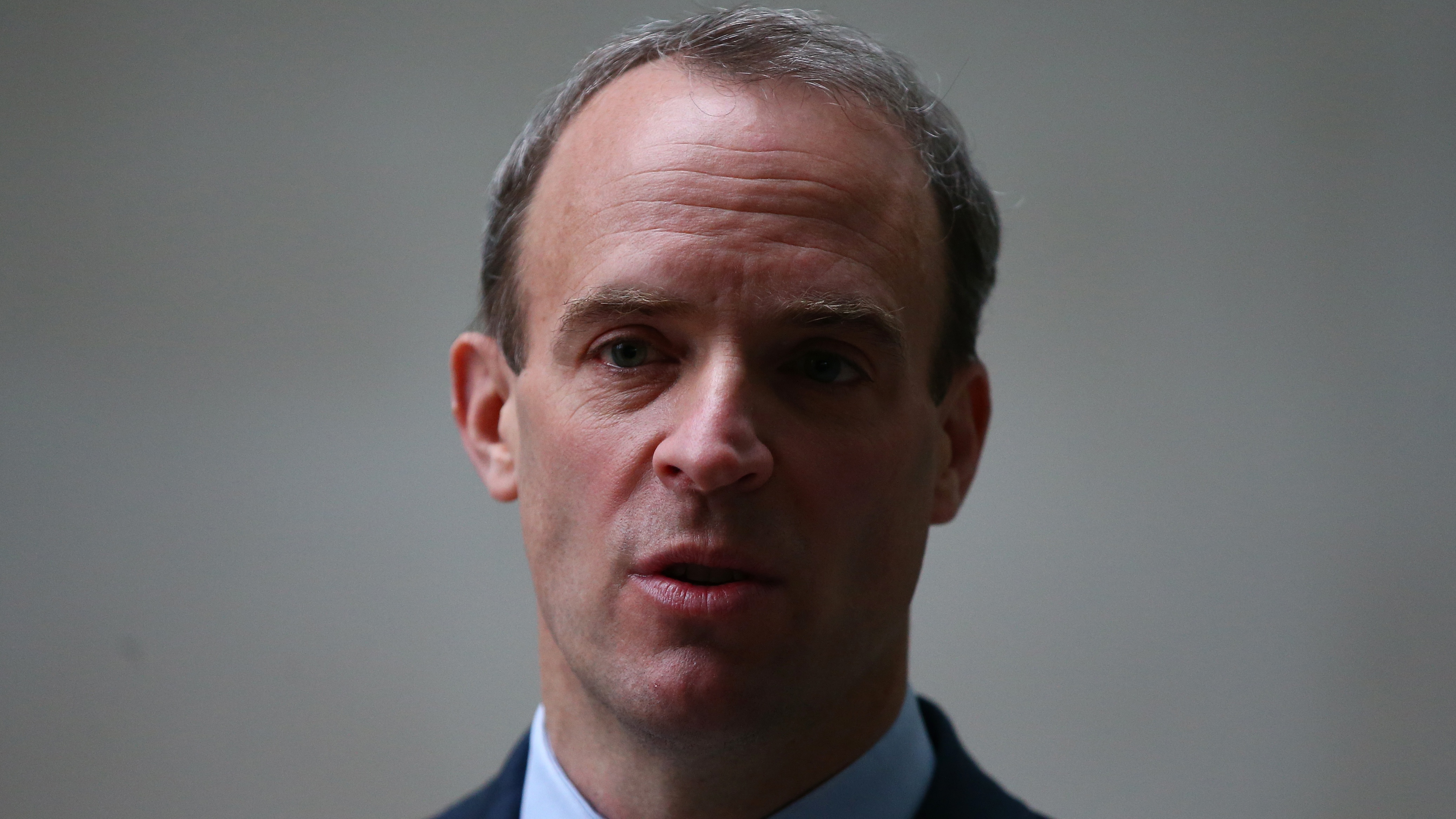Where the £4bn cuts in UK foreign aid might fall
China is targeted as the government outlines plans for reduced overseas spending

A free daily email with the biggest news stories of the day – and the best features from TheWeek.com
You are now subscribed
Your newsletter sign-up was successful
The UK has released the first details of how it intends to impose £4bn worth of cuts to international aid, with critics complaining the vague plans were “slipped out at the end of the day”.
The “long awaited statement” on the government’s international aid spending for 2021-22, which was set out by Foreign Secretary Dominic Raab in a written statement on Wednesday, did not fully outline cuts or future spending commitments to specific countries or programmes. But, says The Guardian, “its new classifications for how it plans to distribute £8.1bn in aid imply massive reductions in key areas”.
The government is acting on plans to temporarily cut its spending commitments on foreign aid from 0.7% of the national income to 0.5%, in order to mitigate economic pressures caused by the Covid-19 pandemic. This is a reversal of a manifesto spending commitment made by the Conservatives in 2019.
The Week
Escape your echo chamber. Get the facts behind the news, plus analysis from multiple perspectives.

Sign up for The Week's Free Newsletters
From our morning news briefing to a weekly Good News Newsletter, get the best of The Week delivered directly to your inbox.
From our morning news briefing to a weekly Good News Newsletter, get the best of The Week delivered directly to your inbox.
The plans also fall in line with a wider ambition the UK to “strategically tilt” towards the Indo-Pacific and South Asia, where around a third of the Official Development Assistance (ODA) budget will be allocated, as well as a focus on East Africa, announced the foreign secretary.
Where have cuts been made?
The plans outlined roughly 80% of the total UK foreign aid budget, with the announcement covering only overseas development spending. The government expects just under £10bn to be allocated in total.
The only country-specific budget allocations outlined in the new plans is a 95% spending cut in aid to China, which is to receive just £900,000 from the ODA.
A free daily email with the biggest news stories of the day – and the best features from TheWeek.com
The money will fund initiatives to promote “open societies and human rights”, said Raab. The decision comes amid heightened tensions between China and the West, with accusations of serious breaches of human rights.
“But other parts of government, such as the Department for Business, Energy and Industrial Strategy, give more aid to China and have yet to say if they will cut their payments too,” reports the BBC.
Further analysis by the Save the Children charity found that new figures showed a significant cut to funding girls’ education overseas. The allocated budget of £400m is down by a quarter from £536m in 2019, and by 6% from last year, when it was £424m, says The Guardian.
The Foreign and Commonwealth Development Office has said detailed figures for individual countries were not normally released until later in the year.
But The Guardian argues that “the opaque presentation of the figures at a time of such large cuts is likely to be seen as in stark contrast to the spirit of openness of the Department for International Development, which was shut down by Boris Johnson last year and merged with the Foreign Office”.
Despite cuts, the breakdown of funding reveals the key areas the government has chosen to focus on: global health security (£1,305m), humanitarian issues (£906m) and climate change and biodiversity (£534m).
What has been said about the aid cuts?
The cuts have proved unpopular with aid charities and many MPs, “including a goodly number of Conservatives”, says the BBC’s James Landale.
Critics of the plans say the government can’t ignore the 0.7% spending target for foreign aid, which is enshrined in law through the 2015 International Development Act, with plans for a legal challenge being considered, says Landale.
Speaking to The Guardian, former Tory international development secretary Andrew Mitchell said “the most draconian cuts ever made by Britain” would affect countries with whom “Britain has a deep and abiding relationship”.
“There are little details but we know the cuts are close to 50%. This is a statement that should have been made to MPs in the Commons rather than slipped out at the end of the day in a written statement,” he continued.
Kevin Watkins, chief executive of Save the Children, claimed the government had “lost its moral compass” over the cuts.
“UK aid for humanitarian response has been cut by almost half since the pandemic and girls’ education, despite being a stated priority of the prime minister, by a quarter,” he said.
Labour MP and chair of the international development committee Sarah Champion said the manner in which the cuts had been announced “shows a lack of respect for both parliament scrutinising these cuts and the aid organisations that are hearing about the spend for the first time only now.
“People’s lives are directly impacted by these decisions and it is shocking that they still don’t have clarity they need,” she said.
Sorcha Bradley is a writer at The Week and a regular on “The Week Unwrapped” podcast. She worked at The Week magazine for a year and a half before taking up her current role with the digital team, where she mostly covers UK current affairs and politics. Before joining The Week, Sorcha worked at slow-news start-up Tortoise Media. She has also written for Sky News, The Sunday Times, the London Evening Standard and Grazia magazine, among other publications. She has a master’s in newspaper journalism from City, University of London, where she specialised in political journalism.